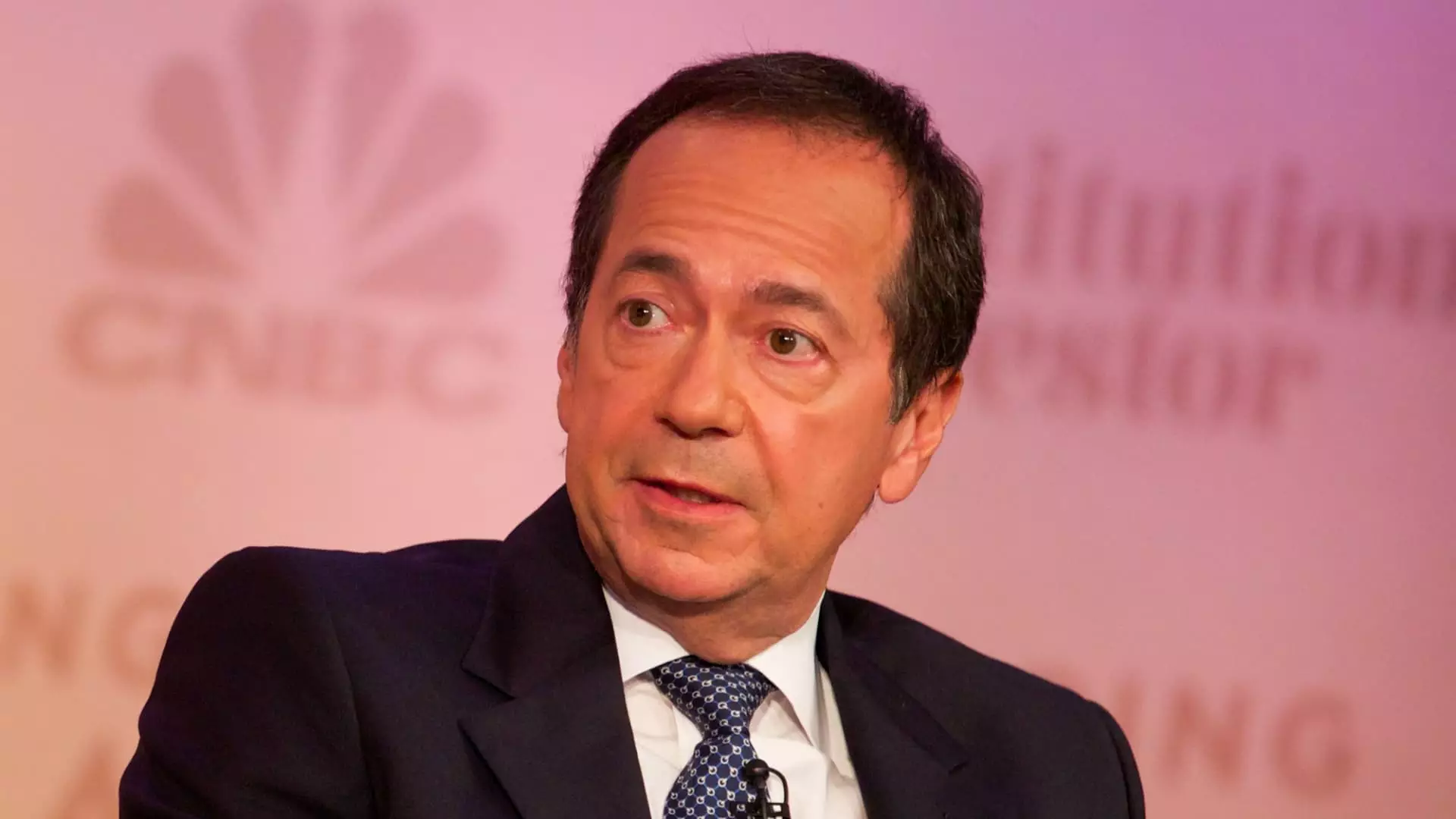As the political climate evolves, the financial sector often finds itself intertwined with policy-making that can influence the market’s trajectory. Recently, hedge fund magnate John Paulson, known for his significant short position against the housing market during the 2008 financial crisis, has been vocal about potential threats stemming from proposed tax reforms under Vice President Kamala Harris. In a recent interview, Paulson expressed strong concerns regarding the repercussions of these tax policies on the stability of financial markets.
Paulson’s perspective cannot be overlooked. He has built a reputation on making calculated risks that often defy conventional wisdom, lending credibility to his assertions about possible market turmoil. His remarks suggest a chilling effect on investor sentiment, leading one to ponder the broader implications of such tax reforms in an already volatile financial environment.
At the heart of Paulson’s critique lies Harris’ support for increasing the corporate tax rate from 21% to 28% and imposing a higher capital gains tax of up to 39%. Furthermore, he highlights proposals for taxing unrealized gains, which could exacerbate the financial strain on high-net-worth individuals and corporations alike. While the intention behind these tax reforms is often portrayed as an effort to achieve a fairer tax system, critics argue that such dramatic changes could lead to reckless market behavior as investors react by liquidating significant assets.
Paulson fears that implementing these changes could spark a sell-off across various sectors, from real estate to financial markets, thereby precipitating a recession. He posits that the consequences would not be confined only to Wall Street but could ripple through main street, ultimately hurting average Americans as market stability wanes.
While Paulson’s viewpoints are dire, it’s worth noting that not all economists align completely with his predictions. Many professional strategists and analysts maintain that while raising corporate taxes might impact corporate earnings, it would not necessarily trigger the catastrophic market declines Paulson suggests. Indeed, a nuanced understanding of tax policy impacts is essential, as the U.S. economy has weathered similar storms in the past without descending into chaos.
Moreover, although market reactions may initially be negative, historical evidence suggests that equity markets are resilient and adapt over time. The assertion that taxes alone will lead to a pronounced market crash ignores the multitude of factors at play, including global economic trends, technological advancements, and consumer behavior.
Paulson himself has a vested interest in the political landscape, having backed Donald Trump’s campaign heavily and reportedly offering counsel regarding economic policy initiatives. His alignment with Trump indicates a crossover between financial interests and political ambition, underscoring that the stakes often involve more than just economic theories. The sentiment that tax hikes might hinder growth reflects broader concerns within the business community regarding the current administration’s goals. However, navigating this complex intersection of finance and politics requires more than predicting doom; it necessitates a willingness to examine workable solutions that promote both equity and economic growth.
Ultimately, the comprehensive assessment of Vice President Kamala Harris’s proposed tax reforms needs to take into account the various economic indicators and the potential resilience of the market. With figures like Paulson ringing alarm bells, it becomes crucial for policymakers to listen and consider the potential fallout of such sweeping changes. Congress’s ability to filter and modify these proposals before implementation can significantly alter the outcome, proving that while the fears articulated may hold validity, they do not invariably equate to inevitable economic decline.
While John Paulson’s warnings about possible financial collapse provide essential food for thought in the ongoing political discourse, it is imperative to balance such perspectives with evidence of market resilience and consideration of multi-faceted drivers of economic growth. The coming months will reveal whether the proposed tax reforms will lead to the predicted consequences or allow the market to stabilize and evolve in response to changing conditions.

